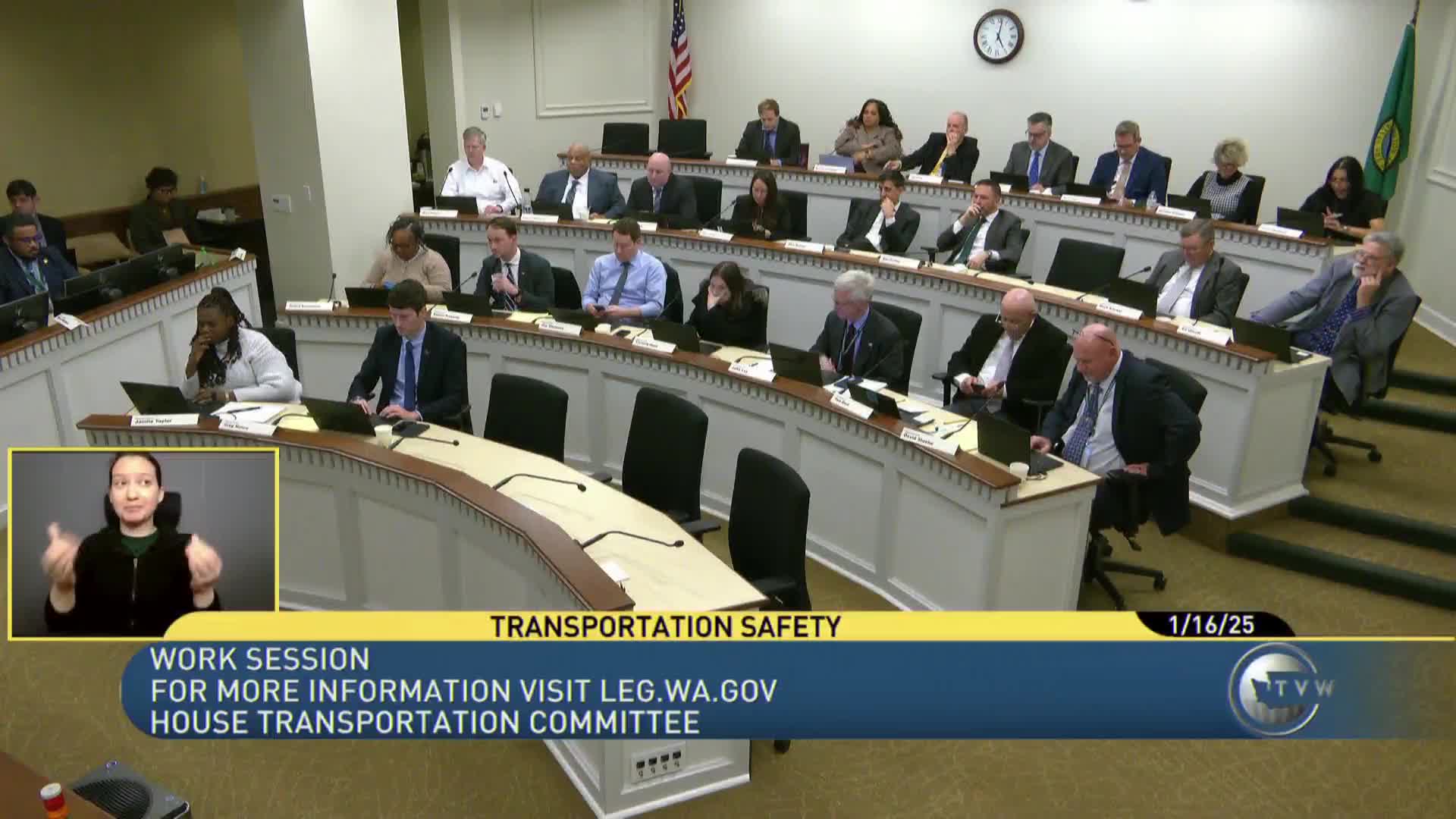Traffic Safety Commission updates Target Zero after rise in fatalities; pilot seeks to close ignition-interlock gap
Get AI-powered insights, summaries, and transcripts
Subscribe
Summary
Shelley Baldwin and Mark McKechnie of the Washington Traffic Safety Commission briefed lawmakers on a revised Target Zero plan, recent fatality trends and a pilot aimed at improving ignition-interlock uptake; they also described proviso-funded enforcement and tribal grants.
Shelley Baldwin, acting director of the Washington Traffic Safety Commission, and Mark McKechnie, the commission’s external relations director, told a legislative committee the agency has revised its Target Zero strategic highway safety plan and is launching pilots and grants to address a recent increase in fatal crashes.
Baldwin said Washington recorded 809 traffic fatalities in 2023, the highest raw number since 1990, and that the state experienced a steep increase in fatalities over recent years. “We were clearly on a downward trend around 2008. We stalled a little bit, and then COVID hit, and we've experienced a 50% increase between 2019 [and] 2023,” Baldwin said.
Nut graf: The commission presented new data showing large increases in crashes involving speeding and impairment, emphasized equity in its updated plan and described near-term work funded by the 2024 supplemental budget provisos: grants to tribes, additional high-visibility enforcement shifts and a pilot to study ignition-interlock compliance.
The commission described a statewide road-user survey—more than 21,000 unduplicated responses over two years—that shows self-reported high-risk behaviors: about 5% of respondents said they drove while impaired by alcohol or drugs in the previous 12 months, and nearly 71% reported driving 10 or more miles per hour over the speed limit at least once in the prior 30 days.
Baldwin and McKechnie said impairment was involved in more than half of 2023’s fatalities and that fatalities involving a young driver (ages 15–24) rose about 74% over a decade. They noted pedestrian fatalities increased substantially and that speeding and lane departures are major contributors to fatal crashes.
The commission said it has reconceptualized Target Zero around a safe-system approach with five pillars: safer people, safer vehicles, safer speeds, safer roads and post-crash care, with equity and safer land use integrated into the plan. Baldwin said the commission spent months consulting communities to center equity in strategy selection.
On provisos from the 2024 supplemental budget, McKechnie said funds were used for tribal grants tailored to local needs (for example, lidar devices, portable breath-test devices and speed-warning signs) and to backfill gaps in high-visibility enforcement. The commission reported 333 enforcement shifts funded by the proviso, 184 DUI arrests during those operations, and that roughly 40% of recorded infractions during shifts were for speeding.
The commission also described an ignition-interlock pilot centered in Yakima District Court designed to understand why many convicted DUI offenders do not have active interlock devices. "The law says anybody with a DUI must have an interlock, but we have about a 30% rate when we compare those people who've had DUIs with the number of interlocks, active interlocks in our state," McKechnie said. The pilot aims to identify barriers—relicensing hurdles, affidavits of non-driving, probation variations—and test interventions to increase installation and compliance.
Committee members asked about evidence-processing backlogs at the Washington State Patrol; Representative Lowe cited a backlog of roughly 14,000–16,000 kits and testing delays that can reach nine months to more than a year for complex poly-drug testing. Baldwin said the Traffic Safety Commission has provided funding for toxicology testing capacity in recent years but that federal and agency resources are limited.
On monitoring interlocks, the commission said the state patrol and probation systems track compliance only for people already on interlock devices; troopers do not routinely track people who are not listed with an interlock device. The Yakima pilot will explore probation supervision and non-vehicle monitoring methods.
Ending: The commission said it will continue to brief the committee as pilot findings and Target Zero implementation work progress, and lawmakers thanked the presenters for the update.
